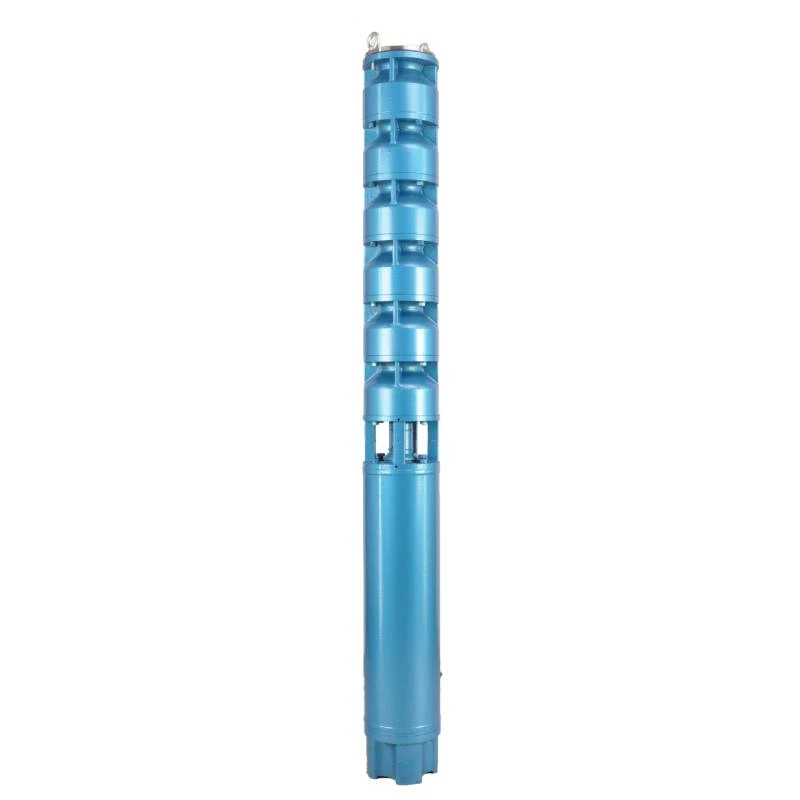נוב . 11, 2024 21:16 Back to list
submersible wastewater pump
Understanding Submersible Wastewater Pumps Essential Components for Efficient Waste Management
In the realm of wastewater management, submersible wastewater pumps play a vital role in efficiently transporting sewage, stormwater, and other forms of wastewater. These specialized pumps are designed to operate underwater, making them the go-to solution for various applications, including municipal sewage systems, industrial wastewater management, and even residential settings. This article aims to provide a comprehensive overview of submersible wastewater pumps, their advantages, application areas, and key considerations for selecting the right pump for your needs.
What is a Submersible Wastewater Pump?
A submersible wastewater pump is a device designed to operate while submerged in fluid. These pumps are typically encased in a cylindrical housing and are powered by an electric motor, allowing them to push wastewater to the surface through a discharge pipe. Unlike traditional pumps that sit above the liquid surface, submersible pumps are lowered directly into the sewage or wastewater, which helps in preventing issues related to air locks that can hinder the operation of other types of pumps.
Advantages of Submersible Wastewater Pumps
1. High Efficiency Submersible pumps are designed to work under the conditions of the liquid they are pumping, allowing them to achieve better efficiency compared to above-ground pumps. The motor being submerged means less energy is lost during transportation.
2. Compact Design These pumps have a relatively small footprint, making them ideal for areas with limited space. Their design allows for easy installation and maintenance.
3. Reduced Noise Levels Submersible pumps are typically quieter than their surface counterparts since the submerged design minimizes noise and vibrations, making them suitable for residential and urban applications.
4. Self-priming Ability Because submersible pumps operate below water, they do not require any priming to start functioning. This characteristic simplifies their operation and reduces the potential for air lock conditions.
5. Versatility Submersible wastewater pumps can handle a variety of liquids, including sewage, stormwater, and industrial effluents, meeting the diverse needs of different sectors.
Applications of Submersible Wastewater Pumps
- Municipal Wastewater Systems These pumps are extensively used in sewage treatment plants and lift stations, where they transport wastewater from lower areas to treatment facilities or higher elevations
.submersible wastewater pump

- Residential Use In homes, submersible pumps can assist in managing basement flooding, draining cesspools, and moving wastewater in situations where gravity flow is impractical.
- Commercial and Industrial Applications Factories and commercial buildings often use submersible pumps to manage effluent generated from operations, ensuring compliance with environmental regulations and efficient wastewater management.
- Agricultural Use In agricultural settings, submersible pumps are utilized for irrigation purposes, especially when dealing with wastewater runoff or recycling.
Key Considerations for Selecting a Submersible Wastewater Pump
When choosing a submersible wastewater pump, several factors should be considered
1. Flow Rate and Head Determine the required flow rate (measured in gallons per minute or liters per second) and the total head (the height to which water must be pumped). These specifications will help in selecting a pump with the right capabilities.
2. Pump Materials Wastewater is often corrosive and abrasive. Therefore, selecting a pump constructed from durable materials such as stainless steel or cast iron is crucial to ensure longevity.
3. Type of Waste Material Different pumps are designed to handle varying types of waste, including solids and slurries. Ensure that the chosen pump can effectively manage the expected material.
4. Power Supply Check for compatibility with the available power supply. Some submersible pumps may require three-phase power, while others may operate on single-phase.
5. Maintenance and Serviceability Consider the ease of maintenance and availability of service support for the pump model you choose. Regular maintenance ensures efficient operation and extends the life of the pump.
Conclusion
Submersible wastewater pumps are indispensable in modern waste management systems, providing a reliable, efficient, and effective solution to various wastewater challenges. Whether in municipal, residential, commercial, or industrial settings, understanding the operational benefits, applications, and selection criteria for these pumps can help ensure smooth wastewater management. Investing in the right submersible wastewater pump can greatly enhance efficiency and contribute to more sustainable waste management practices.
-
Submersible Water Pump: The Efficient 'Power Pioneer' of the Underwater World
NewsJul.01,2025
-
Submersible Pond Pump: The Hidden Guardian of Water Landscape Ecology
NewsJul.01,2025
-
Stainless Well Pump: A Reliable and Durable Pumping Main Force
NewsJul.01,2025
-
Stainless Steel Submersible Pump: An Efficient and Versatile Tool for Underwater Operations
NewsJul.01,2025
-
Deep Well Submersible Pump: An Efficient 'Sucker' of Groundwater Sources
NewsJul.01,2025
-
Deep Water Well Pump: An Efficient 'Sucker' of Groundwater Sources
NewsJul.01,2025
-
 Submersible Water Pump: The Efficient 'Power Pioneer' of the Underwater WorldIn the field of hydraulic equipment, the Submersible Water Pump has become the core equipment for underwater operations and water resource transportation due to its unique design and excellent performance.Detail
Submersible Water Pump: The Efficient 'Power Pioneer' of the Underwater WorldIn the field of hydraulic equipment, the Submersible Water Pump has become the core equipment for underwater operations and water resource transportation due to its unique design and excellent performance.Detail -
 Submersible Pond Pump: The Hidden Guardian of Water Landscape EcologyIn courtyard landscapes, ecological ponds, and even small-scale water conservancy projects, there is a silent yet indispensable equipment - the Submersible Pond Pump.Detail
Submersible Pond Pump: The Hidden Guardian of Water Landscape EcologyIn courtyard landscapes, ecological ponds, and even small-scale water conservancy projects, there is a silent yet indispensable equipment - the Submersible Pond Pump.Detail -
 Stainless Well Pump: A Reliable and Durable Pumping Main ForceIn the field of water resource transportation, Stainless Well Pump has become the core equipment for various pumping scenarios with its excellent performance and reliable quality.Detail
Stainless Well Pump: A Reliable and Durable Pumping Main ForceIn the field of water resource transportation, Stainless Well Pump has become the core equipment for various pumping scenarios with its excellent performance and reliable quality.Detail
